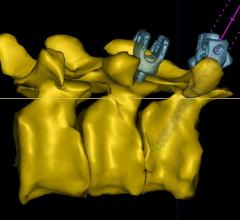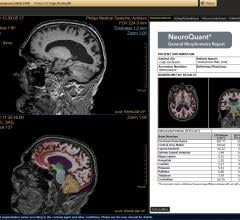If you enjoy this content, please share it with a colleague
Philips
RELATED CONTENT
Philips announced 510(k) clearance from the U.S. Food and Drug Administration (FDA) to market its ElastQ Imaging capability, further expanding the functionalities of its Epiq family of ultrasound systems.
Artificial intelligence (AI) has captured the imagination and attention of doctors over the past couple years as several companies and large research hospitals work to perfect these systems for clinical use. The first concrete examples of how AI (also called deep learning, machine learning or artificial neural networks) will help clinicians are now being commercialized. These systems may offer a paradigm shift in how clinicians work in an effort to significantly boost workflow efficiency, while at the same time improving care and patient throughput.
Philips recently announced the introduction of IntelliSpace Enterprise Edition at the 2017 Healthcare Information and Management Systems Society (HIMSS) annual meeting, Feb. 19-23 in Orlando, Fla. IntelliSpace Enterprise Edition is a highly performing, secure and scalable healthcare informatics platform that enables health systems to manage the growth and cost of their clinical enterprise with a managed service and pay-per-use model. The platform offers a full suite of interoperable healthcare informatics applications and services for hospitals and integrated health networks. It helps health enterprises’ further improve quality of care while meeting the evolving challenges of budget constraints and the management, interoperability, security and value maximization of health data and information technology (IT) platforms.
There are plenty of uncertainties surrounding medical practice in this country. But, if the Radiological Society of North America’s (RSNA) 2016 annual meeting is an indication, value-based imaging will soon be here and it will not soon be leaving.
The ultrasound systems space, which covers 39 major markets, is set to rise steadily from $4.2 billion in 2016 to $5 billion by 2023, according to research and consulting firm GlobalData. This represents a compound annual growth rate (CAGR) of 2.5 percent. The company’s latest report states that the growth will primarily be driven by the rising prevalence of diseases and expanding demand for cost-effective quality healthcare.
Philips announced the development of what it calls an industry-first augmented-reality surgical navigation technology designed to help surgeons perform image-guided open and minimally-invasive spine surgery. The addition of this new augmented reality technology will further widen the scope of Philips hybrid operating room (OR) solutions to other fast-growing areas of image-guided surgery including spine, cranial and trauma procedures.
January 4, 2017 — Philips introduced at RSNA 2016 PerformanceBridge, a new suite of performance management software and ...
Royal Philips recently announced that its e-Alert was awarded “Most Innovative IoT Solution” at the World Communication Awards, Dec. 19 in London. The World Communication Awards are recognized as the most prestigious awards in the global telecom industry, highlighting innovation and outstanding industry performance.
As part of the 2016 Radiological Society of North America (RSNA) Annual Meeting (RSNA), Philips announced the introduction of IntelliSpace Portal 9.0, the latest edition of its comprehensive, advanced visual analysis and quantification platform. Featuring a suite of multi-modality functions and expanded neurological tools, IntelliSpace Portal 9.0 helps radiologists detect, diagnose and follow up on treatment of diseases, while using new machine learning capabilities to support the physician. The solution addresses radiologists' needs for tools to better support the growing group of patients with brain injuries and neurological disorders such as dementia, strokes, amyotrophic lateral sclerosis (ALS) and multiple sclerosis (MS).


 February 28, 2017
February 28, 2017 







